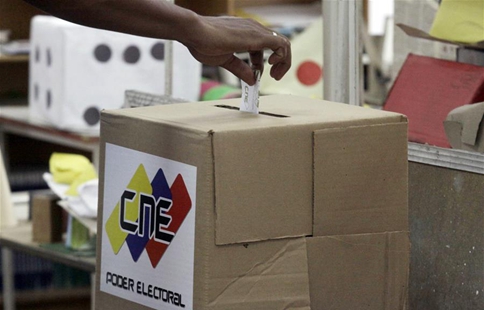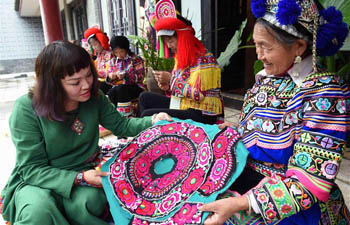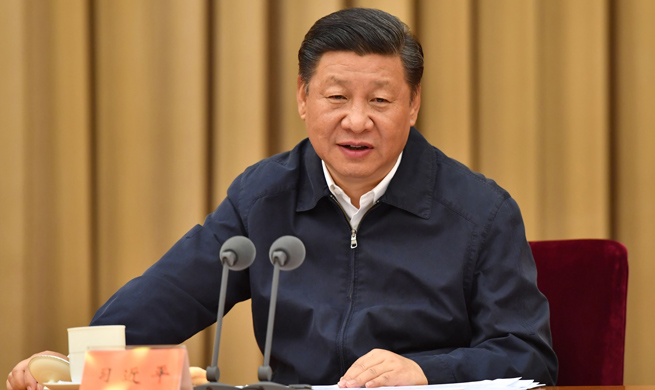GENEVA, July 17 (Xinhua) -- Nearly one in ten infants worldwide did not receive any vaccinations against diphtheria, tetanus and pertussis (DTP) in 2016, leaving them at a serious and high risk of these potentially fatal diseases, according to the latest statistics unveiled Monday by the WHO and UNICEF.
The most recent WHO and UNICEF immunization estimates show that about 12.9 million infants globally missed their first dose of DTP vaccine in 2016, of whom 6.6 million did not complete the full three doses of DTP immunization (DTP3).
"Most of the children that remain unimmunized are the same ones missed by health systems," says Dr. Jean-Marie Okwo-Bele, director of Immunization, Vaccines and Biologicals at the WHO. "These children most likely have also not received any of the other basic health services. If we are to raise the bar on global immunization coverage, health services must reach the unreached."
According to the new data, 130 of the 194 WHO member states have achieved and sustained at least 90 percent coverage for DTP3 at the national level, which is one of the targets set out in the Global Vaccine Action Plan.
However, an estimated ten million additional infants need to be vaccinated in 64 countries, if all countries are to achieve at least 90 percent coverage. That includes about four million living in just three countries, Afghanistan, Nigeria and Pakistan, where access to routine immunization services is critical to achieving and sustaining polio eradication.
Meanwhile, many middle-income countries are lagging behind in the introduction of these newer and more expensive vaccines. These countries often do not receive external support and their health budgets are often insufficient to cover the costs of procuring these vaccines.
The WHO also highlights inequalities in childhood immunization coverage in low- and middle-income countries over the past ten years, despite generally less inequality now than ten years ago.
"Immunization is one of the most pro-equity interventions around," says Dr Robin Nandy, Chief of Immunizations at UNICEF. "Bringing life-saving vaccines to the poorest communities, women and children must be considered a top priority in all contexts."
Immunization currently prevents between two to three million deaths of infants every year, from diphtheria, tetanus, whooping cough and measles, which is one of the most successful and cost-effective public health interventions, the WHO said.
















